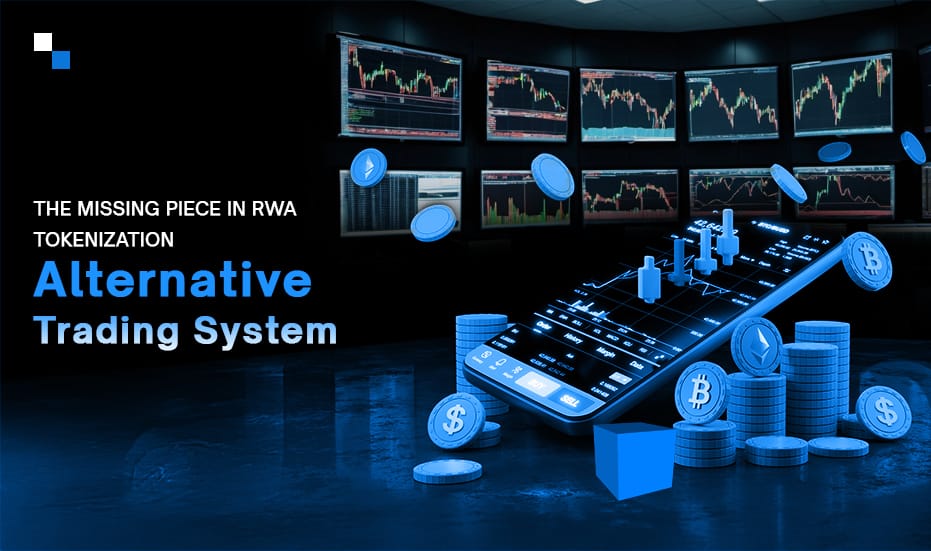The global futures trading software market size was estimated at about $1.5 billion in 2023 and is expected to grow towards approximately $3.8 billion by 2032, with an estimated compound annual growth rate (CAGR) of 10.5% during the estimated time frame. Such remarkable growth in market size is mainly due to various factors such as technological developments in the platform for trading, increased participation of retail investors in the futures trade, and the growing need for efficient risk management tools.
The Evolution of White Label Futures Trading Software
Before discussing low entry barriers, it would be quite interesting to know what the term white label futures trading software means. This software allows enterprises to provide futures trading services without paying stress on developing the relevant software from scratch. That is, “white label” refers to the service being available for resale by a company after rebranding it as if it were the firm’s product, so startups don’t need to trouble themselves with technical development but instead brand and acquire customers.
Futures trading is basically the trading of contracts agreeing on buying or selling an asset at some future date for some particular price. It’s a market experiencing exponential growth based both on individual and institutional trading, which has sought to hedge against risks or speculate over pricing changes. The easy availability of a customizable and feature-rich trading platform provides a lucrative opportunity for any startup to make the market entry with utter confidence, and that too at an extraordinarily fast pace.
In 2025, we’re seeing a new generation of white label platforms that offer:
- Cloud-based infrastructures
- Modular architectures
- Advanced APIs for seamless integration
- User-friendly customization tools
- Built-in regulatory compliance features
Customizing a white label futures trading software significantly reduces the technical and financial threshold to enter, thus opening the floodgates for even resource-poorer startups launching trade platforms.
Entry Barriers: Important Factors
1. Customization of Low-Code and No-Code
By 2025, white label solution providers offer intuitive drag-and-drop interfaces and visual editors through which non-technical users can personalize their trading platforms. Accordingly, no deep knowledge of coding is needed nor a large team of developers, thus reducing both time-to-market and operational costs significantly.
2. AI-Powered Risk Management
With artificial intelligence, the whole idea of risk management in futures trading has been furthered. White label futures trading software, now, comes preloaded with AI algorithms capable of analyzing market trends and assessing trader behavior to auto-implement risk mitigation strategies. Such sophistication was once the privilege of large institutions alone and is now accessible to start-ups and has leveled the playing field.
3. Blockchain Integration
Integration of blockchain technology into the white label futures trading software has found ways to resolve several issues related to trust and transparency. This has prevented many potential entrants into the market. Smart contracts can even automate trade execution and settlement through fewer intermediaries and at lower operational costs.
4. Regulatory Technology (RegTech) Solutions
Compliance has always been one of the major challenges faced by trading start-ups, but the latest white label platforms feature built-in RegTech solutions for automating the compliance process, not only in the KYC/AML checks but also in transaction monitoring. It significantly reduces the regulatory burden for start-ups to focus on their core business activity.
Strategies for Success in 2025
While entry barriers may have become a little easier in terms of accessing the market, careful planning and execution in the venture will still be required.
Here are some strategies for startups looking to leverage white label futures trading software in 2025:
1. Focus on Niche Markets
Niche markets are wider than ever, and so is the competition. Successful startups identify niche markets in futures trading. Sometimes, it’s a niche of an asset class; sometimes a geographical niche; and sometimes some unconventional trading style. Niching gives such a chance to stand out and offer competition for a chosen set of users.
2. Put User Experience at the Forefront
Now in 2025, user experience shall be the key to any success, and white label implementations, if they do see the light, will mainly promise intuitive interfaces, responsive design, and seamlessness of mobile devices in general. Startups must invest proper time in personalizing their platforms so that the experience for the users is unique, and interactive, and stands the competition with its competitors.

3. Leverage data analytics
White label futures trading software now comes with very powerful analytics tools. It will be very important for startups to use all these features to gather insights into trader behavior, market trends, and platform performance. That’s how they can be data-driven and will make decisions based on the real situation of the business. A lot of businesses have been turning towards that type of decision-making.
4. Build strong support infrastructure
It is human involvement that becomes the most imperative even with the most advanced forms of automation. Successful startups continually invest in knowledgeable customer support teams as well as comprehensive educational resources. This helps in maintaining the customers but also establishes trust and credibility for the platform.
5. Remain Agile and Innovative
The futures trading landscape is in a continuous state of change. Startups must be nimble, constantly updating and perfecting new features on their platforms and adjusting according to the ever-changing marketplace. It could require new asset classes, advanced trading algorithms, and innovative technologies as they are developed.
Antier Offers Customized White Label Futures Trading Software
Antier is leading the way in developing custom-made white label futures trading software. Our team understands that the current changes and requirements of startups are evolving day by day. Hence, we create state-of-the-art white label solutions augmented with flexibility, security, and a user-centric design.
Our focus is to ensure that the startups will have a chance to opt for advanced features, such as AI-powered risk management and RegTech integrations that result in assured safety and compliance. We enable you to launch strong, efficient, and future-ready platforms for trading.
Feeling interested? We are available for free consultation. Contact today!





